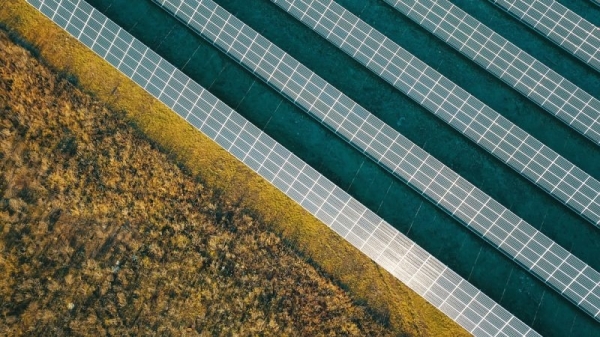France publishes renewables progress report for 2022

France is progressing well in terms of integrating renewable energies into its energy mix, though the efforts are still insufficient to achieve the national and the EU objectives, according to the numbers published by the French Energy Transition Ministry on Wednesday (10 May).
Renewable energies will account for 20.7% of gross final energy consumption in France in 2022, up 1.4 percentage points compared to 2021, showed the latest updated figures published on Wednesday.
This increase is explained by a rise in renewable capacities in the energy mix, combined with lower final energy consumption due to energy reduction measures, the low availability of nuclear power, and record high energy prices, the ministry explained.
Three renewable energy production sectors stood out in particular: wind power (+9%), biogas (+13%) and photovoltaic solar power (+31%).
More renewables, more electricity
In other words, the share of renewables in the electricity mix is increasing, in line with the outlook for 2050 on the electrification of the energy mix of the main French electricity transmission operator, RTE.
In addition, the rise in the share of renewables compared to total energy consumption is “relatively constant over the period, excluding the health crisis”, the ministry noted.
As repeatedly stated by the Energy Transition Minister, Agnès Pannier-Runacher, since 2015, France has followed a pace similar to Germany’s.
In 2021, France and Germany achieved a 19.3% and 19.2% share of renewables in their gross final energy consumption, respectively.
France failed to meet the target set out in the 2018 Renewable Energy Directive (RED) of 23% of final energy consumption from renewables by 2020. Germany had to meet a target of 18%.
La France encore bonnet d’âne…
Le cap fixé par la directive RED en 2018 de part de renouvelable dans la consommation finale brut n’est toujours pas atteint et les 23% d’énergies renouvelables, dans la consommation finale fixés pour 2020, ne sont toujours pas d’actu en 2022.— Michèle Rivasi



